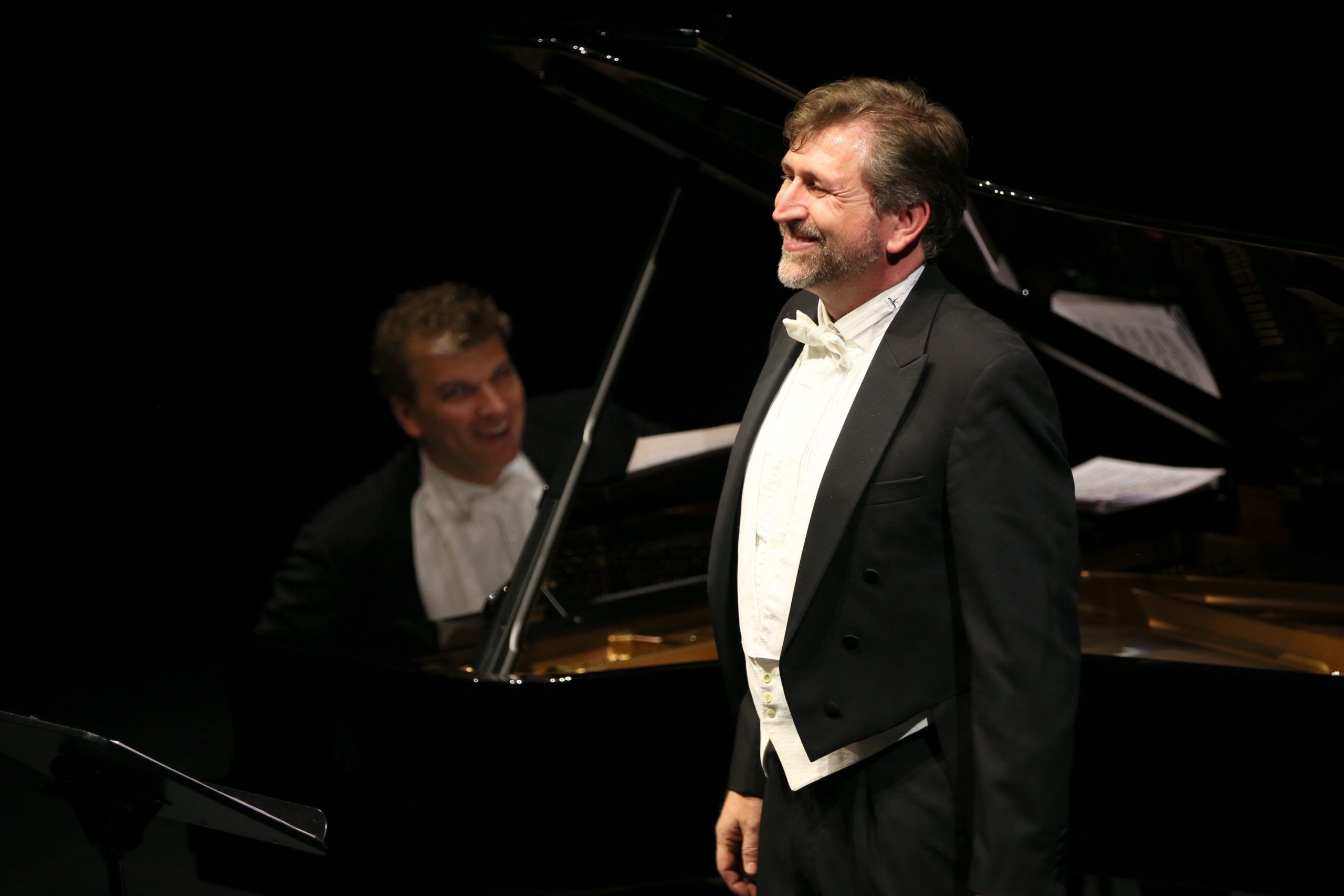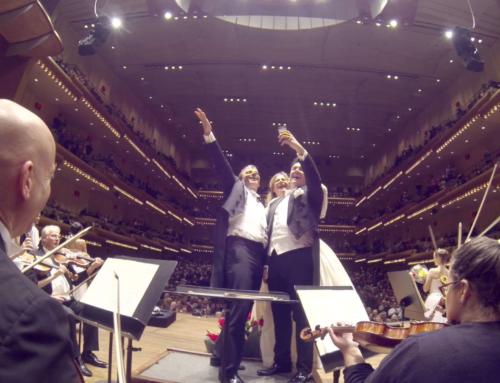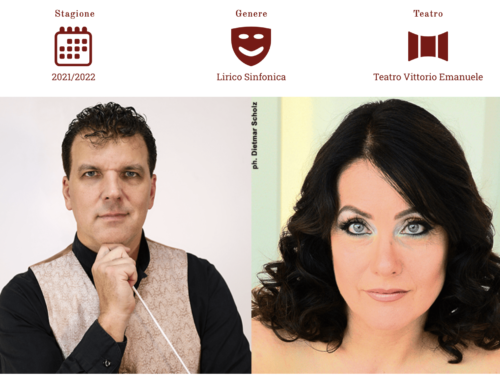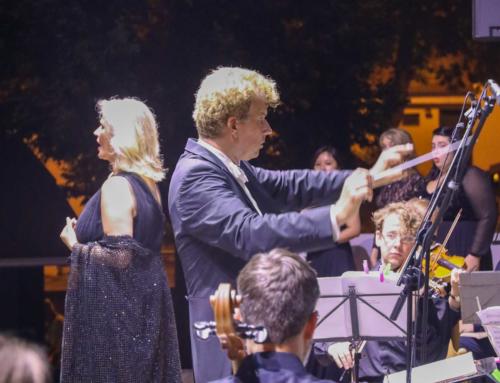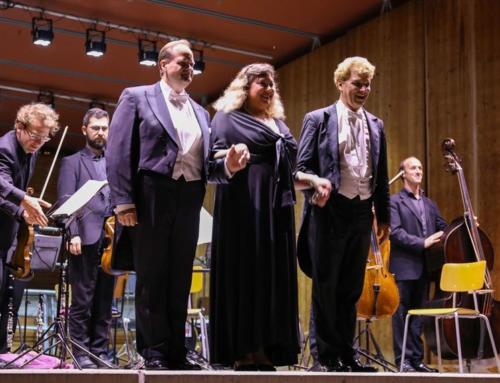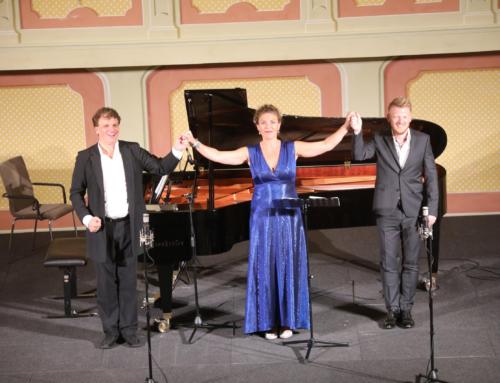At the start of the recital cycle in the Frankfurt Opera, Andreas Schager and Matthias Fletzberger presented a program of songs with works by Schumann, Wagner, Beethoven, List and Strauss in front of a well-attended house. The audience gave big and long-lasting applause (shouts of bravo even before the break) and the critics were also impressed: "Schager and the art song: a beautiful beginning", "His articulation was without exception as clear as writing down", "Matthias Fletzberger as Pianist, never too loud, always cuddly ”.
“His effortless vocal power is stunning, and - it would be the same for Siegfried - the real challenge for him lies in the piano and in the details. Schager knows, Schager tries. At his side, the pianist Matthias Fletzberger also shows how it is a well-rehearsed team. At the line "we could be angels" they smile diabolically at each other. Nevertheless, it is an evening air like Donnerhall that blows over the Robert Schumannsche “Myrthen” piazetta. When you drink in Richard Wagner's Wesendonck-Lieder, face to face, the earth shakes. In Franz Liszt's three Petrarca sonnets, the hero tenor becomes an Italian hero tenor, for whom the respective sonnet punch line becomes gigantic.
There are, of course, other moments, in Beethoven's songs “An die ferne Geliebte” an enchanting lightness to return to May. But here, too, you notice how the singer loves and is able to show off at the end. Schager, quite a prankster if he may, has prepared himself carefully and clearly accepts his role as a beginner in this new situation. He always competes completely unborn anyway, nothing about him seems complicated. The music stand stands in front of him, and yet he sometimes has to make an effort not to completely give up the text comprehensibility in the tempo (and not only there). The result is the sympathetic impression of an artist who dares to venture into not unknown, but less familiar territory.
The choice was wise, also original, in that one naturally does not often hear the Wesendonck songs from a man. Isolde steps back behind Tristan, who is now even granted a kind of love death. Perhaps the most colorful of all are the Richard Strauss songs at the end: “How should we keep them secret?” (Namely, the common bliss), Schager sings, and that will be really difficult with this impact. But the "serenade" already shows that it can be done very well. “Open up, open up, but quietly my child,” the piano murmurs. Schager and the art song: a nice start. "
(Judith Sternberg, Frankfurter Rundschau, October 12, 2016)
“In the official program, with parts from Robert Schumann's“ Myrtle ”op. 25 and with Ludwig van Beethoven's cycle“ To the distant beloved ”, op. 98, he dared to engage with the genre, which he was unfamiliar with, as demanding as his selection from Richard-Strauss Songs and Franz Liszt's settings of three Petrarch sonnets. “Pace non trovo” (“I can't find peace”): Both the meaning of the text and the perfectly focused heroic tenor Schager legitimized the extreme fortissimo at this point. Especially since in Beethoven's cycle, in particular, he had opened the spectrum much wider. He sang of “Maien” and “blooming meadows” with youthful ease and without any tension, in the final number “Take them, then, these songs” he offered bewitchingly filigree moments that, in addition to all heroic muscular games, regularly characterize his stage appearances.
Perhaps he will dare this reluctance a little more often in future recitals than in this debut. And instead rely less on large, sweeping gestures, which distracted a little from another of Schager's strengths: Without exception, his articulation was clear as if to be taken down, already in Schumann's “Dedication”, the “Nussbaum” and the two “Venetian songs” that he called had chosen courageous self-challenge to get started. His compatriot Matthias Fletzberger offered him support in every way as a pianist, never too loud, always cuddly. "
(Alex Zibulski, FAZ, October 13, 2016)

